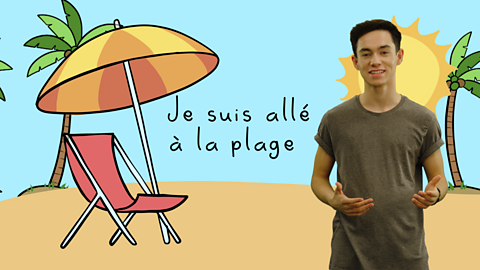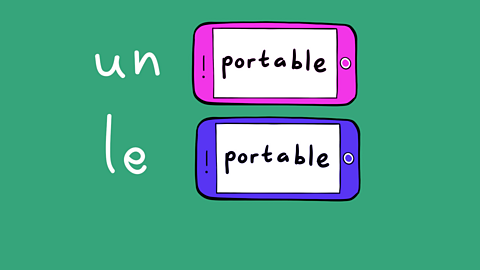How to use the infinitive in French
When you look up a verb in the dictionary you find the infinitive form. In English it’s made up of two words: to swim.
But in French it’s just one, nager.
And if you want to say something more about verbs like nager then there is a group of verbs that do just that.
They’re called modal verbs. Modal verbs indicate ability, permission or obligation. In English they are words like: can, will and must.
In French the most common are: vouloir - to want, devoir - to have to, pouvoir - to be able to.
When you put a modal verb and an infinitive together this is what happens…
je veux - I want and nager to swim…
je veux nager - I want to swim.
je dois means I have to.
Je dois nager - I have to swim.
je peux means I can. Je peux nager - I can swim.
And it’s not just swimming.
Je veux manger - I want to eat.
Je dois travailler - I have to work.
Je peux venir - I can come.
You can say what you must, can and want to do with je dois, je peux and je veux.
What are infinitives?
Infinitives are the basic form of a verb, before any changes for tense or people are made - like jouer (to play) or faire (to do).All French infinitives end in either
-er, -ir or -re:
- jouer - to play
- finir - to finish
- vendre - to sell
Using infinitives after aimer, détester and préférer
You can use an infinitive after opinion verbs such as aimer, détester and préférer. They are usually translated with a gerund (a verb ending with -ing) in English:
- J’aime habiter à Newcastle - I like living in Newcastle.
- Tu préfères jouer au foot ou au tennis? - Do you prefer playing football or tennis?
- Elle déteste boire du café parce que c’est dégoûtant – She hates drinking coffee because it’s disgusting.
You can also use these verbs with a noun and no infinitive:
- J’aime les chats - I like cats.
- Je déteste le foot - I hate football.
- Je préfère la natation - I prefer swimming.
How to use infinitives after modal verbs
Modal verbs express ability, permission, obligation or desire (things you want to do). Examples of modal verbs in English are ‘can’, ‘must’ or ‘want’. An infinitive is always needed after modal verbs such as devoir (to have to), pouvoir (can/to be able to) and often (but not always) after vouloir* (to want) and falloir (to be necessary).
- Je dois faire plus de sport - I have to do more sport.
- Tu voudrais regarder un film? - Would you like to watch a film?
- Il faut manger beaucoup de fruits - It’s necessary to eat lots of fruit.
- On peut aller au cinéma - You/one can go to the cinema.
Je voudrais, meaning 'I would like', is the conditional form of vouloir and is a very useful phrase.

*Vouloir and falloir can be also be followed by a noun, eg:
- Je voudrais une glace - I would like an ice cream.
- Il faut de la patience - Patience is necessary/needed.
Using infinitives to talk about the future
To talk about what you are going to do in the future, use a form of aller (to go) followed by an infinitive:
- Je vais manger un sandwich - I’m going to eat a sandwich.
- Tu vas aller au marché? - Are you going to go to the market?
- Il va prendre beaucoup de photos - He’s going to take lots of photos.
Click here to find out more about using the simple future tense
Quiz
Find out how much you know about infinitives and other verbs in French with this short quiz.
More on Grammar
Find out more by working through a topic
- count6 of 8

- count7 of 8

- count1 of 8
